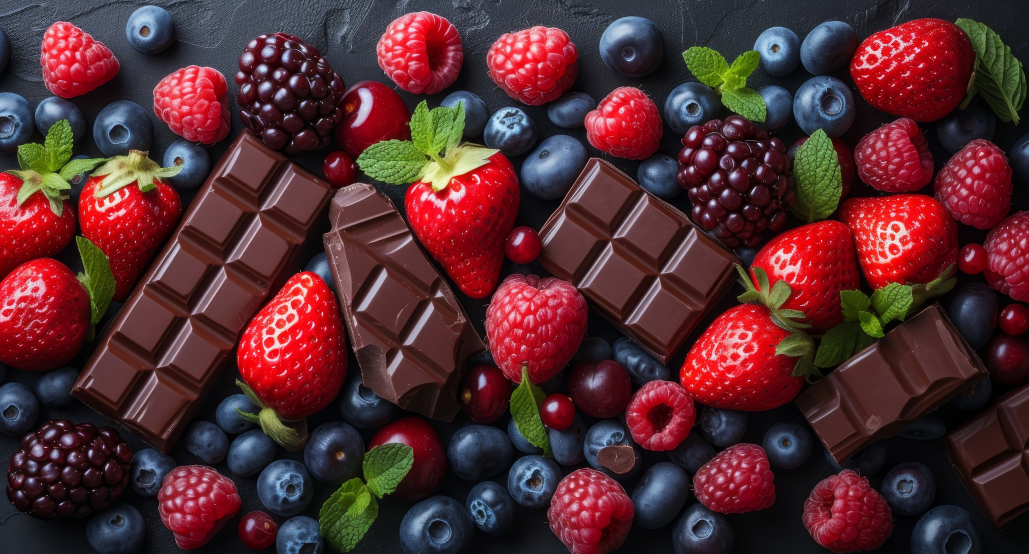Polyphenols, the natural compounds found in fruits, vegetables, and tea, have long been praised for their antioxidant properties and health benefits. But did you know that these powerful plant compounds can also support cognitive health and help reduce alcohol cravings? Recent research suggests that polyphenols promote brain health and regulate neurotransmitters, protecting the brain and helping us manage our drinking habits. As more studies explore the connection between diet and addiction, polyphenols are emerging as a natural way you can boost cognitive function and support your goals of drinking less.

The Science Behind Polyphenols, Cognitive Health, and Alcohol Reduction
Polyphenols, which include natural compounds including flavonoids, phenolic acids, and stilbenes, offer numerous benefits for brain health. Here’s how they work to support cognition and reduce alcohol cravings:
- Neuroprotection and brain health. Polyphenols have strong antioxidant and anti-inflammatory properties that protect brain cells from oxidative stress and inflammation — both of which are linked to cognitive decline and brain damage caused by excessive alcohol consumption.
- Improved neurotransmitter regulation. Polyphenols play a role in regulating neurotransmitters such as dopamine and serotonin, which influence mood, motivation, and reward-seeking behavior. Alcohol disrupts these neurotransmitter systems, leading to cravings and addictive behaviors. By supporting healthy neurotransmitter function, polyphenols reduce cravings and improve emotional balance.
- Supporting memory and cognitive function. Studies show that polyphenols, especially those found in foods like berries, green tea, and cocoa, can enhance memory and cognitive performance. This boost in brain function may help you make better decisions when it comes to alcohol, as improved cognition often leads to better impulse control and a stronger ability to stick to your health goals.
- Promoting gut-brain health. Polyphenols support the microbiota-gut-brain axis, the communication pathway between the gut and brain. Since gut health is closely tied to cravings and mood, improving gut health through polyphenol-rich foods may reduce the desire to drink and support emotional well-being
Tips for Incorporating Polyphenols Into Your Diet
Adding polyphenol-rich foods to your daily routine is an easy way to improve cognitive health and support your efforts to drink less. Here are some tips to help you get started:
- Eat more berries. Blueberries, strawberries, and raspberries are packed with polyphenols that support brain health and memory. Include a handful of berries in your breakfast or as a snack to boost your intake of these powerful compounds.
- Enjoy green tea. Green tea is rich in catechins, a type of polyphenol known for its neuroprotective properties. Swap out sugary drinks or alcoholic beverages for a calming cup of green tea to promote brain health and reduce inflammation.
- Add dark chocolate. Dark chocolate with a high cocoa content (70% or more) is full of flavonoids, which have been shown to improve cognitive function. Enjoy a small piece of dark chocolate as a healthy treat that supports both brain health and mood regulation.
- Incorporate nuts and seeds. Walnuts, almonds, and flaxseeds are great sources of polyphenols. These healthy fats also support brain function, making them a perfect addition to your diet if you're working on reducing alcohol consumption and boosting cognitive health.
- Use olive oil. Extra virgin olive oil is rich in polyphenols and offers anti-inflammatory benefits. Incorporate it into your cooking or salad dressings to support both brain health and heart health.
- Try herbal teas. In addition to green tea, herbal teas like rooibos and hibiscus are rich in polyphenols. Replace alcohol with these refreshing alternatives to boost your polyphenol intake and support relaxation without reaching for a drink.
Summing Up
Improving cognitive health through a polyphenol-rich diet not only protects the brain from alcohol-related damage but also strengthens the ability to make healthier choices. Enhanced cognitive function, better impulse control, and improved mood all contribute to a more balanced relationship with alcohol. By focusing on brain-healthy foods, you create a foundation for long-term well-being that makes it easier to cut back on drinking and maintain positive habits.













